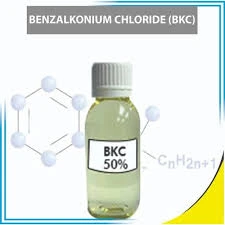industrial flocculant
The Role of Industrial Flocculants in Water Treatment
Industrial flocculants play a critical role in water treatment processes within various sectors, including mining, municipal wastewater treatment, and pharmaceuticals. These chemicals are essential for the efficient separation of solids from liquids, enhancing the clarity of water and ensuring compliance with environmental regulations.
Flocculants are typically polymers that facilitate the aggregation of fine particles suspended in water, forming larger flocs that can be easily removed. The use of flocculants can significantly improve the settling rate of particles in sedimentation tanks, leading to higher throughput in treatment plants. This enhances the overall efficiency of the water treatment process and reduces operational costs.
The Role of Industrial Flocculants in Water Treatment
Municipal wastewater treatment plants utilize flocculants to clarify water before it is safely discharged back into the environment or returned for reuse. The addition of flocculants to wastewater helps remove suspended solids, organic matter, and other impurities, ensuring that the treated water meets health and safety standards. This process is vital for preventing pollution and safeguarding public health.
industrial flocculant

Moreover, the pharmaceutical industry relies on flocculants in the production of various medications. During the manufacturing process, these agents assist in separating active ingredients from solvents and byproducts. The efficient removal of unwanted particles is crucial for ensuring product quality and safety, making flocculants an indispensable component in pharmaceutical production lines.
Different types of flocculants are available, each suited for specific applications. Cationic, anionic, and nonionic flocculants can be selected based on the characteristics of the wastewater and the desired outcome. This flexibility allows treatment facilities to optimize their processes and improve performance. Additionally, the use of biodegradable flocculants is gaining traction as industries strive for sustainability.
However, the application of industrial flocculants is not without challenges. The optimization of dosage levels is critical; too much flocculant can lead to destabilization of the floc, while too little may result in incomplete separation. Monitoring and adjusting these levels require a good understanding of the specific treatment processes and the nature of the contaminants involved.
In conclusion, industrial flocculants are vital for effective water treatment in various sectors. Their ability to enhance solid-liquid separation processes significantly contributes to environmental protection and regulatory compliance. As industries continue to evolve, the development of more efficient and eco-friendly flocculants will play a pivotal role in promoting sustainable practices and safeguarding water resources for future generations.
-
lk-319-special-scale-and-corrosion-inhibitor-for-steel-plants-advanced-solutions-for-industrial-water-systemsNewsAug.22,2025
-
flocculant-water-treatment-essential-chemical-solutions-for-purification-processesNewsAug.22,2025
-
isothiazolinones-versatile-microbial-control-agents-for-industrial-and-consumer-applicationsNewsAug.22,2025
-
scale-inhibitor-key-solutions-for-water-system-scale-preventionNewsAug.22,2025
-
organophosphonates-versatile-scale-inhibitors-for-industrial-water-systemsNewsAug.22,2025
-
scale-and-corrosion-inhibitor-essential-chemical-solutions-for-water-system-maintenanceNewsAug.22,2025





